Get Masonry Sealing in Denver, CO
Masonry sealing services help Denver property owners protect and preserve brick, stone, and concrete surfaces from water damage, stains, and cracking by sealing outdoor patios, walkways, and retaining walls.
Properly sealing masonry surfaces is an important step for property owners in Denver, CO, looking to preserve the durability and appearance of their outdoor spaces. Sealing helps protect against moisture intrusion, freeze-thaw damage, and staining, which are common concerns in the region’s variable climate. Whether maintaining a patio, walkway, or retaining wall, choosing experienced local contractors ensures the job is done effectively and with attention to the specific conditions of Denver’s environment. Exploring available options allows property owners to compare services and find providers equipped to handle the unique needs of their masonry projects.
For those planning to enhance or maintain their property’s exterior, understanding the benefits of masonry sealing can be a practical consideration. Local service providers offer a range of solutions tailored to different types of masonry surfaces, helping to extend their lifespan and improve curb appeal. By reviewing local options, property owners can identify experienced contractors capable of delivering professional results that meet their project goals. Continuing to explore available services can support informed decisions for maintaining Denver properties’ structural integrity and aesthetic value.
- Historic brick or stone facades - masonry sealing may be needed to protect surfaces from weather damage in neighborhoods like Capitol Hill or Five Points.
- Outdoor patios and walkways - sealing can help prevent staining and deterioration of concrete or stone surfaces in yards or public spaces.
- Commercial building exteriors - local contractors can apply sealants to preserve the appearance and integrity of masonry on storefronts or office buildings.
- Retaining walls and garden structures - sealing services can help maintain the durability of masonry features in residential or landscape projects around Denver.
- Cracked or porous masonry surfaces - sealing can reduce water infiltration and prevent further damage in areas prone to freeze-thaw cycles.
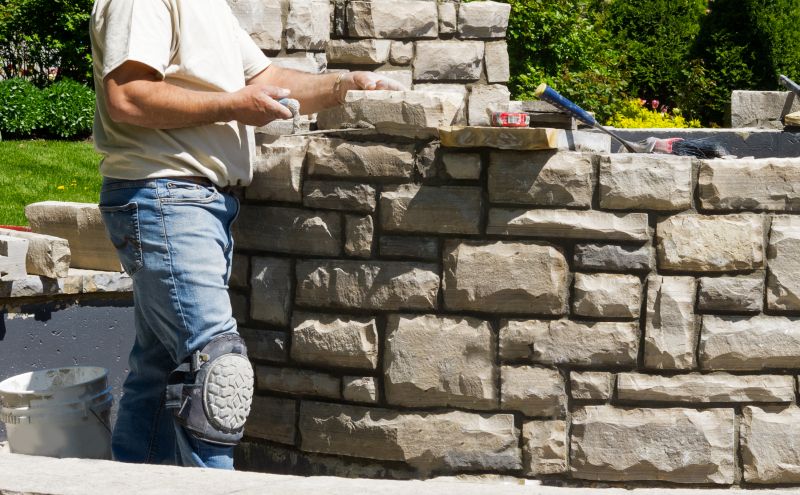
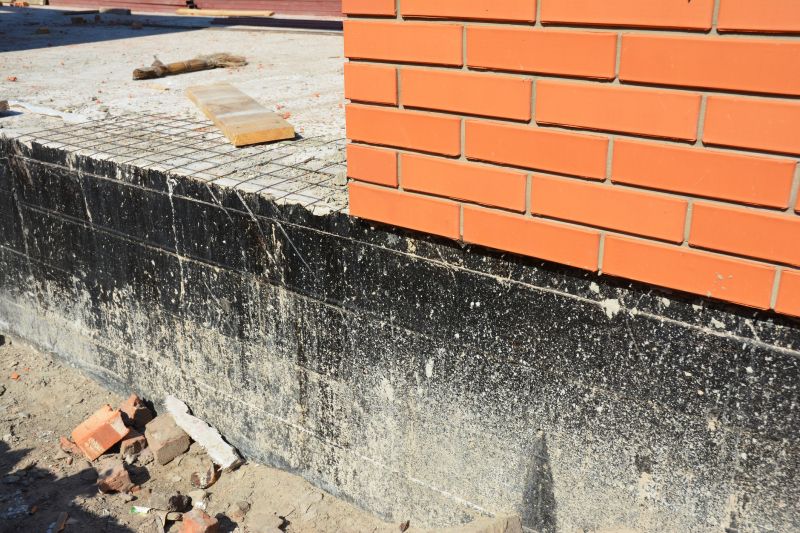
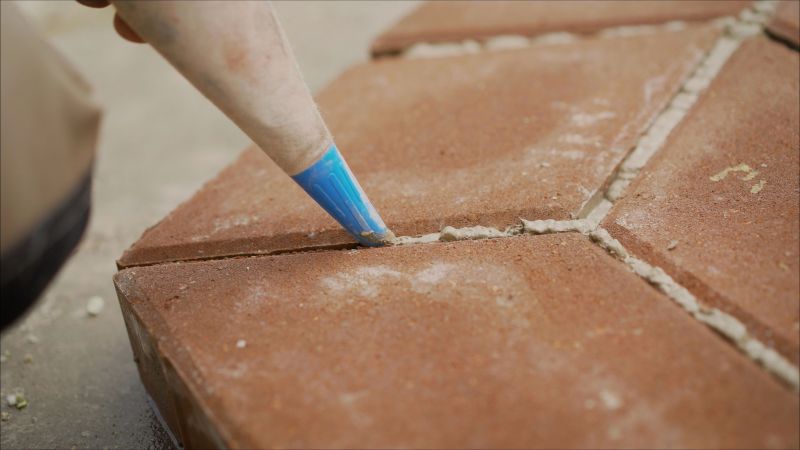
Masonry sealing services involve applying a protective coating to the surfaces of stone, brick, or concrete structures. This process helps create a barrier that prevents moisture, dirt, and other contaminants from penetrating the material. Proper sealing can enhance the appearance of masonry surfaces while also helping to preserve their structural integrity over time. Service providers typically use specialized sealants designed to withstand weather exposure and maintain the natural look of the masonry, ensuring the property remains attractive and durable.
One of the main problems that masonry sealing addresses is water infiltration. When moisture seeps into porous materials like brick or stone, it can lead to issues such as efflorescence, spalling, or cracking, especially in areas with freeze-thaw cycles like Denver, CO. Sealing helps mitigate these problems by reducing the amount of water that can penetrate the surface, thereby decreasing the risk of damage caused by freeze-thaw expansion and contraction. Additionally, sealing can make cleaning easier by repelling dirt and stains, which is particularly beneficial for outdoor walkways, patios, and building facades.
Masonry sealing is commonly used on residential properties such as homes with brick or stone exteriors, driveways, and retaining walls. Commercial buildings, especially those with brick facades or decorative stonework, also benefit from this service. Property owners who want to protect outdoor features like fireplaces, garden walls, or pavers often turn to masonry sealing to extend the lifespan of their investments. This service is especially relevant in climates with significant seasonal changes, where moisture and temperature fluctuations can accelerate deterioration if surfaces are left unprotected.
Homeowners noticing signs of weather-related wear, such as efflorescence, discoloration, or surface cracking, may find masonry sealing to be a practical solution. It can also be a proactive measure to prevent future damage, helping to maintain the value and appearance of the property. By connecting with experienced service providers, property owners can ensure that their masonry surfaces receive the appropriate protective treatment, tailored to the specific needs of their property and local climate conditions.
The overview below groups typical Masonry Sealing projects into broad ranges so you can see how smaller, mid-sized, and larger jobs often compare in Denver, CO.
In many markets, a large share of routine jobs stays in the lower and middle ranges, while only a smaller percentage of projects moves into the highest bands when the work is more complex or site conditions are harder than average.
Smaller Repairs - Typical costs for minor masonry sealing jobs, such as sealing a small patio or walkway, range from $250-$600. Many routine projects fall within this middle range, while fewer jobs push into the higher end of the spectrum.
Standard Sealant Applications - For sealing larger surfaces like driveways or multiple outdoor surfaces, local contractors generally charge between $600-$1,200. This range covers most common projects with consistent scope and size.
Large or Complex Projects - Larger projects, such as sealing extensive commercial masonry or historic structures, can cost $1,500-$5,000+ depending on size and detail. These higher-tier jobs are less frequent but necessary for more involved work.
Full Surface Replacement - Complete replacement of old or damaged masonry before sealing can range from $5,000 and above, depending on the extent of demolition and reconstruction needed. This is typically reserved for extensive renovations or structural work.
Actual totals will depend on details like access to the work area, the scope of the project, and the materials selected, so use these as general starting points rather than exact figures.
Concrete Restoration - Professionals experienced in masonry sealing often handle concrete restoration projects to protect surfaces from water damage and staining.
Stone Patio Installation - Installing stone patios requires similar planning and sealing techniques to ensure durability and resistance to weather elements.
Brick Wall Repair - Repairing and sealing brick walls involves similar surface preparation and application methods used in masonry sealing services.
Outdoor Fireplace Construction - Building and sealing outdoor fireplaces requires expertise in masonry work and protective sealing to withstand outdoor conditions.
Retaining Wall Construction - Constructing retaining walls involves masonry skills and sealing techniques to prevent water infiltration and structural damage.
Tile and Grout Sealing - Sealing tile and grout surfaces shares common techniques with masonry sealing to protect against moisture and staining.
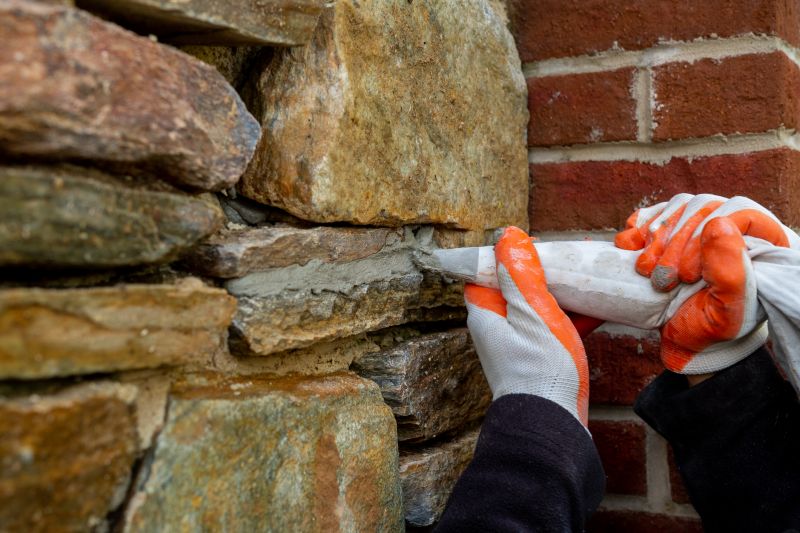
When comparing masonry sealing services in Denver and nearby areas, it’s important to consider the experience of local contractors with similar projects. Homeowners should look for service providers who have a proven track record of handling masonry sealing work on structures comparable to their own, whether that’s driveways, patios, or retaining walls. An experienced contractor will understand the specific challenges of working with different types of masonry materials and can provide insights into effective sealing techniques that have been successful in local conditions.
Clear, written expectations are essential when evaluating potential service providers. Homeowners should seek out contractors who can offer detailed descriptions of the scope of work, the materials they plan to use, and the steps involved in the sealing process. Having this information in writing helps ensure that both parties are aligned on what will be done, reducing misunderstandings and providing a basis for accountability. Reliable local pros will be transparent about their process and willing to answer questions to clarify any uncertainties.
Reputable references and good communication are key factors in choosing a masonry sealing contractor. Homeowners are encouraged to ask for references from past clients with similar projects and to follow up to learn about their experiences. Effective communication throughout the process - including responsiveness to inquiries and clarity in explanations - is also a strong indicator of professionalism. It’s worth noting that these local service providers are introduced as options for homeowners to compare and connect with, rather than as entities performing the work directly. This approach helps ensure that the chosen contractor is well-suited to meet the specific needs of the project.
Property owners in Denver, CO use Masonry Sealing services for practical projects around their homes and businesses. This guide focuses on everyday jobs and straightforward project options.
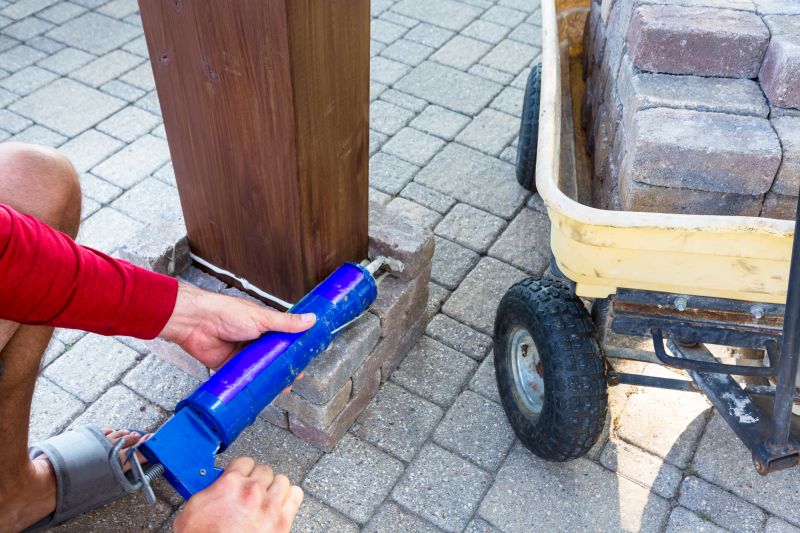
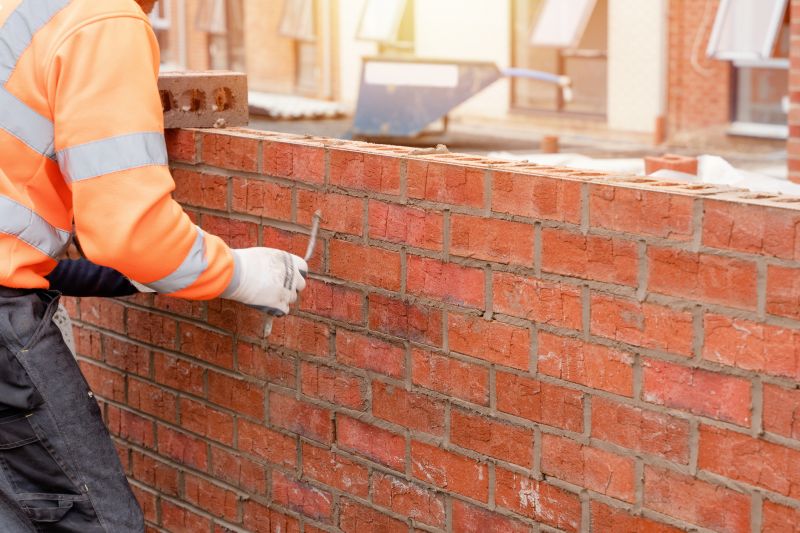
Masonry sealing services are often sought by property owners in Denver, CO to protect outdoor surfaces like patios, walkways, and retaining walls from the elements. With the city’s seasonal weather changes, including snow, rain, and intense sun, unsealed masonry can become vulnerable to moisture penetration, cracking, and surface deterioration. Local contractors can apply sealants that help preserve the integrity of these surfaces, reducing the risk of damage and extending their lifespan. This type of work is especially common for homeowners looking to maintain the appearance and durability of their outdoor spaces amidst Denver’s varied climate.
Property owners may also look for masonry sealing services to prevent staining and surface erosion caused by dirt, algae, and other environmental factors. Regular sealing can help keep stone and concrete surfaces looking clean and well-maintained, which is important for curb appeal and property value. Local service providers are experienced in handling different types of masonry materials, ensuring proper application tailored to Denver’s specific weather conditions. Whether preparing for winter or maintaining a polished outdoor area, many property owners turn to local contractors for professional sealing solutions.
What is masonry sealing? Masonry sealing involves applying a protective coating to stone, brick, or concrete surfaces to help prevent water penetration and damage caused by moisture.
Why should I consider sealing my masonry surfaces? Sealing can help reduce weather-related wear, prevent staining, and extend the life of masonry materials by protecting them from moisture and other environmental factors.
What types of masonry surfaces can be sealed? Masonry sealing services typically cover surfaces such as brick walls, stone facades, concrete driveways, patios, and walkways.
How often should masonry be resealed? The frequency of resealing depends on the type of surface and exposure conditions, but generally, sealing every few years helps maintain protection.
How do local contractors perform masonry sealing? Local service providers assess the surface, choose appropriate sealants, and apply them evenly to ensure effective coverage and protection.
Protect Brick and Stone Surfaces - Masonry sealing helps preserve the appearance and integrity of brick and stone on walkways, patios, and walls.
Prevent Water Damage - Sealing masonry surfaces can reduce water infiltration, helping to prevent cracks and deterioration caused by moisture.
Maintain Curb Appeal - Proper sealing enhances the look of masonry features, keeping outdoor surfaces looking clean and well-maintained.
Extend the Life of Masonry Features - Regular sealing can help extend the durability of masonry surfaces against weathering and daily wear.

If you are thinking about Masonry Sealing for a property in Denver, CO, this guide is meant to help you understand the work, the typical project types, and how different options might fit your plans.
When you are ready, you can use the quote form on this page to share a few details about your project. From there, local pros can review the basics and respond with options that match what you have in mind.
